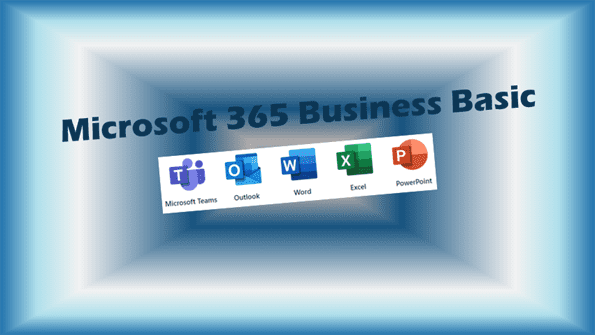Unlocking Remote Work Tax Deductions: Maximise Your Tax Relief Today!
Remote work tax deductions
Introduction
Working from home is the new normal, but are you leaving money on the table when it comes to your remote work tax deductions? Learn how to stay secure while working remotely by checking out remote work security.
Here’s the deal: Millions of remote workers miss out on claiming tax relief for their work-related expenses. Whether you’re embracing hybrid working or setting up a dedicated home office, understanding what you’re eligible for can save you hundreds, if not thousands, each year.
Let’s dive into the ultimate guide that breaks down every penny you can claim, every rule you need to know, and how to file without stress.
The secret? Most people don’t realise how much tax relief they can unlock simply because they never take the time to ask the right questions.
What Are Remote Work Tax Deductions?

Remote work tax deductions refer to expenses you can claim when working from home. These might include the cost of running a home office, such as electricity, internet, and even specific equipment needed for your job.
Why does this matter? Because if you’re footing the bill for work-related costs, you deserve to get a chunk of that back through tax relief. For example, the UK government allows a flat-rate deduction or specific calculations based on actual costs.
By knowing what’s deductible, you can significantly lower your taxable income, keeping more money in your pocket.
Who Can Claim Tax Relief While Working From Home?
To claim tax relief, you must meet specific criteria. Generally, you need to be required to work from home by your employer. This could be due to office closures, hybrid working arrangements, or roles that are entirely remote.
Who qualifies?
- Full-time remote workers
- Employees working from home part-time due to hybrid policies
- Individuals using their homes as a primary workplace
However, if you’re working from home by choice, you might not be eligible for certain deductions. Always double-check HMRC’s guidelines to ensure you meet their standards.
The Top Expenses Eligible for Tax Deductions

Here’s a breakdown of expenses you should consider when filing:
- Home Office Expenses: This includes a portion of your rent, mortgage interest, or utility bills.
- Travel Expenses: For hybrid workers, trips from home to a temporary workplace might be deductible.
- Office Equipment: Items like desks, chairs, monitors, and printers can be claimed. Enhance your setup by exploring remote work productivity tools.
The golden rule? Only include expenses that are directly tied to your job. Anything personal is off the table.
How to Claim Tax Relief for Your Home Office
Ready to claim your home office expenses? Follow these steps:
- Gather receipts and bills for eligible costs.
- Calculate the percentage of your home used for work.
- File a self-assessment tax return, or use your employer’s expense system if applicable. Learn how to maintain your home office systems with this guide on repairing Windows 10 using command prompt.
Pro Tip: HMRC allows a flat rate of £6 per week for home working expenses without detailed receipts. But if your costs are higher, itemising expenses may yield greater savings.
Common Mistakes When Claiming Remote Work Tax Deductions
Avoid these pitfalls when filing:
- Overestimating Costs: Only claim the portion of expenses used for work. HMRC frowns upon exaggerated claims.
- Neglecting Travel Expenses: Hybrid workers often miss out on claiming for journeys between home and the office.
- Misunderstanding the Rules: Always check what’s allowable for tax purposes to avoid penalties.
Mistakes can cost you money—either in missed relief or fines. Double-check your figures before submitting. Protect your devices while working remotely by using tools like best free antivirus for Windows 11.
Tax Relief for Hybrid Working: What You Need to Know
For employees splitting their time between home and the office, tax rules can get tricky. But here’s the gist:
- Travel Expenses: You can claim relief for trips to temporary workplaces.
- Home Office Costs: These can still be claimed if a significant portion of your job requires remote work.
Hybrid workers must carefully track both home and travel expenses to ensure they don’t miss out. Make the most of your hybrid setup with Microsoft Teams keyboard shortcuts.
How Much Tax Relief Can You Actually Receive?
The amount of tax relief you can receive depends on your expenses and tax rate. For instance:
- £6 per week in tax relief equates to £125 annually for basic-rate taxpayers.
- Itemising expenses can lead to even higher savings, particularly for larger home offices or increased utility usage.
By understanding what’s deductible, you can maximise your savings year over year.
Can Freelancers and Contractors Claim Remote Work Tax Relief?
If you’re self-employed, your deductions are slightly different but equally valuable. Here’s what you can claim:
- Home Office Costs: A proportion of your rent, utilities, and maintenance.
- Equipment: Anything necessary for your business is fair game.
- Travel Costs: Trips to clients or temporary workplaces count too. If IT setups are part of your work, check out how to create a Rufus Windows 11 bootable USB drive.
Freelancers should maintain detailed records to substantiate claims in case of an audit.
Is Your Home Office Eligible for Tax Deductions?

Not all home offices qualify for tax relief. To be eligible:
- The space must be exclusively used for work.
- You need to spend a significant amount of time working from home.
Using a shared or multi-purpose space? You might only claim a percentage of the total cost.
Simplified Checklist for Maximising Your Tax Relief
Want to make sure you’re getting every penny you’re entitled to? Follow this:
- Track all work from home expenses.
- Use HMRC’s flat rate if you lack receipts.
- Consult a tax professional if your situation is complex.
- File your tax return accurately and on time.
Don’t let confusion keep you from saving money. With a little effort, you can make the most of your remote work tax deductions.
Key Takeaways:
- Remote workers can claim significant tax relief for home offices and other expenses.
- Hybrid workers should keep track of travel expenses to maximise deductions.
- Always keep receipts and document your claims carefully.
- If you’re unsure, consult HMRC guidelines or a tax advisor.
Start maximising your tax relief today and keep more of what you earn!
FAQs – Remote work tax deductions
How much tax relief can I claim for working from home?
The amount of tax relief you can claim depends on your circumstances. For employees in the UK, HMRC allows a flat rate of £6 per week (£125 annually for basic-rate taxpayers) without needing to provide receipts. If your actual costs are higher, you can claim specific expenses such as a portion of your utilities, internet, and even rent, but you’ll need to keep detailed records. For the self-employed, deductions are based on the percentage of your home used for work and the hours spent working there. For more accurate information, refer to HMRC’s tax relief guidelines.
Do you have to pay tax if you work remotely?
If you work remotely in the UK, your tax obligations remain the same as if you worked in an office. Income tax and National Insurance contributions are based on your salary and tax code. However, remote workers may qualify for tax relief on specific work-related expenses, reducing their overall tax burden. Rules can vary for individuals working remotely for companies based in other countries—tax treaties between nations often determine whether you’ll be taxed locally or abroad.
What expenses can I claim when working away from home UK?
When working away from home, you can claim expenses that are directly related to your job, including:
Travel expenses: Costs for traveling to a temporary workplace.
Accommodation: If your job requires overnight stays.
Food and drink: Meals during business trips.
Office equipment: Items like laptops or other tools required for your work.
Always ensure the expenses are solely for business use and keep receipts. For specific rules, visit the HMRC expenses guide.
Can I claim the cost of a desk for working from home?
Yes, you can claim the cost of a desk if it’s exclusively used for work. For employees, your employer might reimburse you tax-free, or you can claim it as an expense on your tax return. Self-employed individuals can include the cost of a desk as a business expense. However, dual-use items (e.g., furniture used for both personal and professional purposes) may not be fully deductible. Refer to the HMRC homeworking expenses guidelines for more details.






